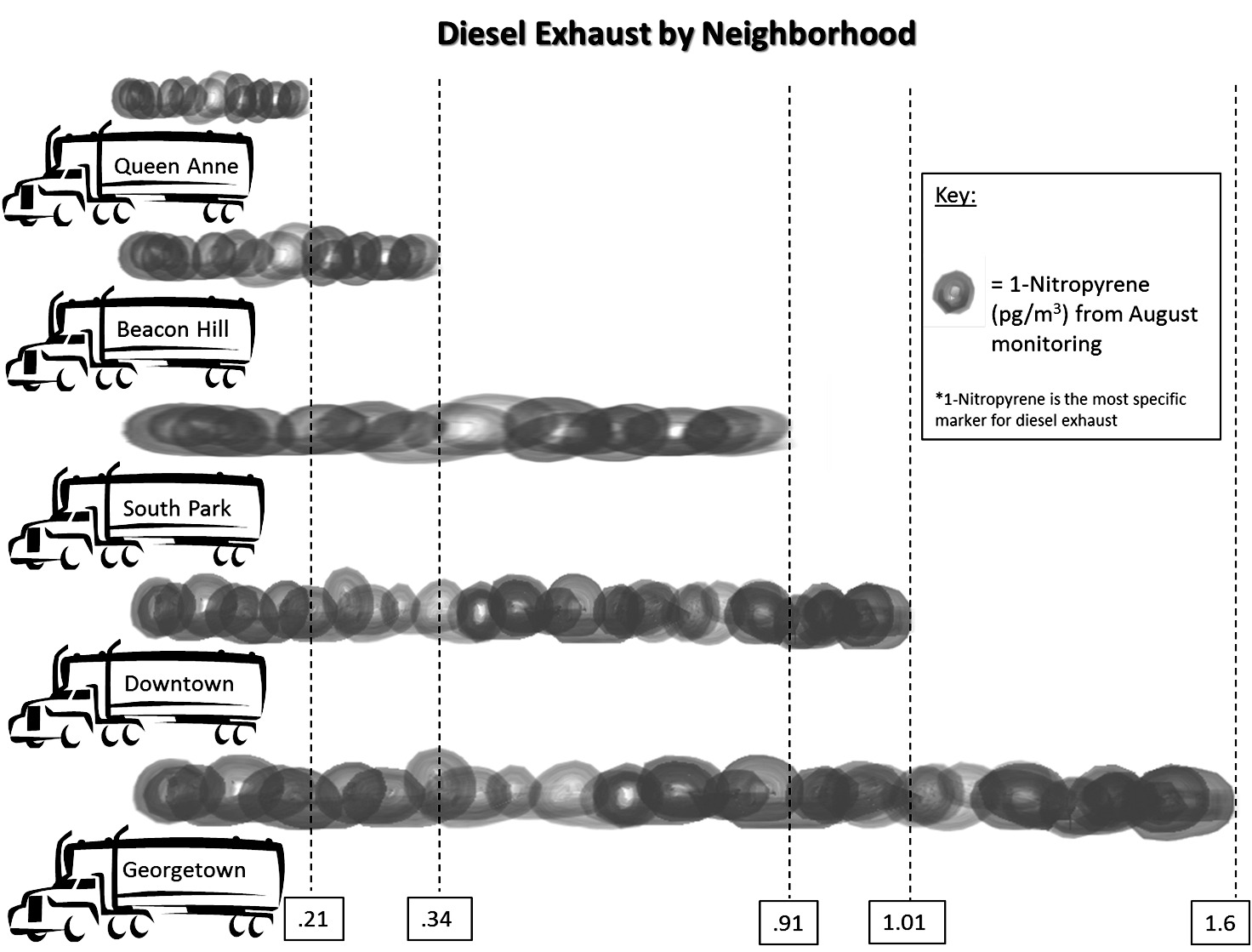Addressing the disproportionate impact of diesel exhaust exposure on the port-adjacent neighborhoods of Georgetown and South Park.
Georgetown and South Park are two ports adjacent to Seattle communities that are disproportionately affected by diesel exhaust pollution. Due to their proximity to trucking routes connecting the Port of Seattle to freeways outside the city, port trucks are often routed through these neighborhoods, spewing diesel exhaust into nearby houses, schools, and parks.
The World Health Organization classifies diesel exhaust as a “known carcinogen” and has many detrimental health effects including lung cancer and asthma.
However, when the Clean and Safe Ports campaign addressed health and environmental concerns surrounding the Port of Seattle, the Port minimized its impacts of air pollution on local residents, stating that their own models did not show that air pollution was poor in the area. There was no report or study to show the diesel exhaust impacts on any of the port adjacent neighborhoods.
Community Health Surveys
In response, Puget Sound Sage conducted a Community Health survey with over 600 Georgetown and South Park residents, in which residents acknowledged trucks and air quality as primary sources of concern, especially near residential areas.
To address this concern, Sage partnered with the University of Washington’s School of Public Health to conduct the Diesel Exhaust Exposure in the Duwamish Study (DEEDS), a collaborative, community-based study, which measured the level of diesel pollution in Georgetown and South Park.
Sage organizers, along with the University of Washington researchers, monitored air quality in both Georgetown and South Park neighborhoods, as well as Queen Anne, Beacon Hill, and Downtown Seattle in order to have a comparison of diesel exhaust in the surrounding areas. Residents of Georgetown and South Park participated in the study by hosting air home monitors in their back yards and around the neighborhood. They also educated fellow community members about diesel exhaust and its effects on air quality through public meetings and home visits.

Disproportionate Impacts in Georgetown & South Park
The report showed a disproportionate impact of diesel exhaust on the neighborhoods of Georgetown and South Park compared to the measured sites in Queen Anne, Beacon Hill, and Downtown Seattle.
The results gave the community a strong foothold for future advocacy and organizing in their communities. Georgetown and South Park residents now have the scientific evidence and reports they need to advocate for better air quality in their neighborhoods, in order to protect the health of all individuals living and working near the Port of Seattle.
